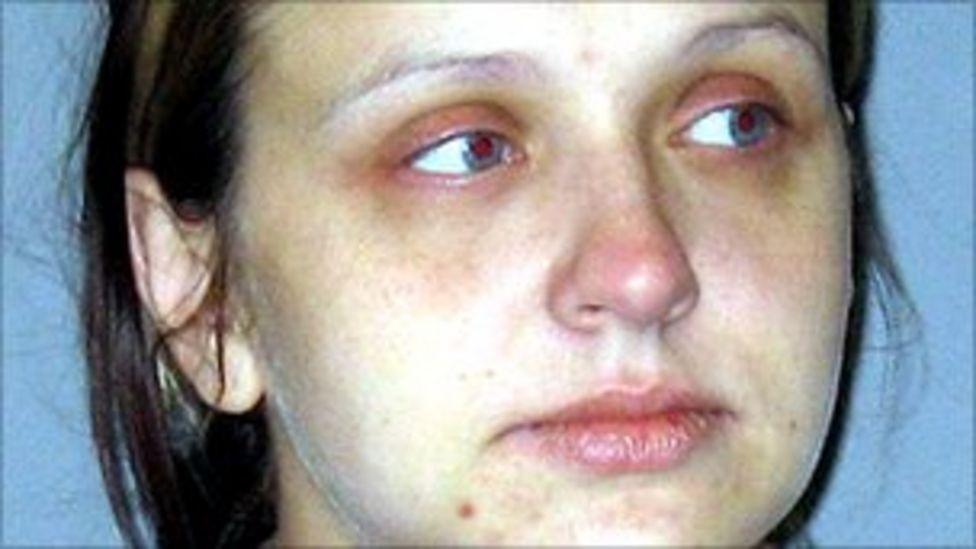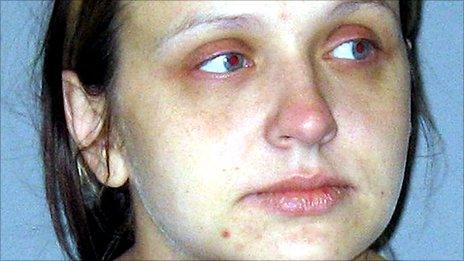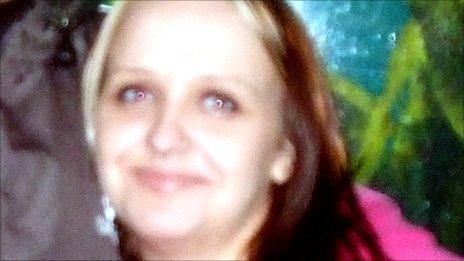Fraserburgh mum's baby murder conviction to be reviewed
- Published

Ineta Dzinguviene was jailed in 2012 for a minimum of 15 years
A woman found guilty of murdering her baby 12 years ago may have been wrongly convicted, the Scottish Criminal Cases Review Commission has said.
She is understood to be Lithuanian Ineta Dzinguviene.
She was 26 when she was jailed for killing the newborn using plastic food wrapping in Fraserburgh, Aberdeenshire.
Her case has been sent back to the high court over "significant" new evidence about her mental state at the time of the murder in in April 2010.
The baby boy, later named Paulius Dzingus, was found in a bag in Fraserburgh.
Dzinguviene was jailed for a minimum of 15 years at the High Court in Glasgow. The appeal court will decide whether her conviction should be overturned.
After she was convicted in Scotland, she was extradited to Lithuania over the death of another baby.
The baby girl, Paulina, died in 2009, shortly before Dzinguviene moved to Scotland with her husband and three other children.
Dzinguviene admitted smothering her at at her home in Marijampole, Lithuania, in 2009.
Dzinguviene was jailed by a Lithuanian court for another 15 years for that murder.
Psychological work
It is understood that Dzinguviene applied to the Scottish Criminal Cases Review Commission (SCCRC) in 2020, arguing she should have been convicted of culpable homicide instead of murder.
The application to review her conviction was based on psychological work carried out by the Scottish Prison Service during her imprisonment.
It concluded that it was likely her decision-making at the time of the offence had been "affected seriously by conditions that had not been diagnosed before the trial", the SCCRC said.
Following a "lengthy and wide-ranging review" of the case including an assessment by a forensic psychiatrist, the SCCRC concluded that the new psychiatric and psychological evidence was significant.
A statement from the SCCRC said: "The commission considers that a miscarriage of justice may have occurred."
The commission, which operates with a board of eight members, has written to the High Court, the Lord Advocate and the Crown Office outlining why.
The SCCRC is an independent body set up in 1999 to review alleged miscarriages of justice in Scottish convictions and sentences.
Related topics
- Published26 September 2012

- Published9 June 2011

- Published12 May 2011
